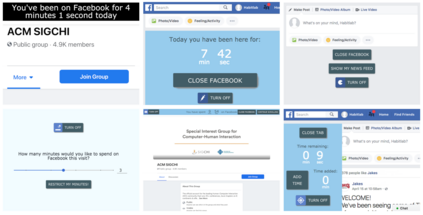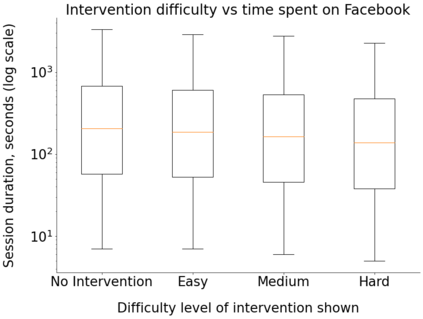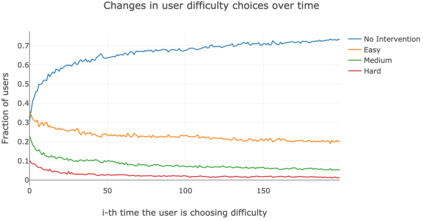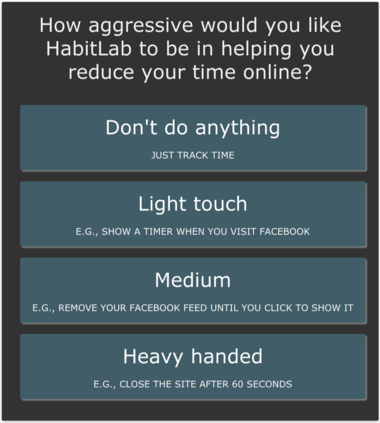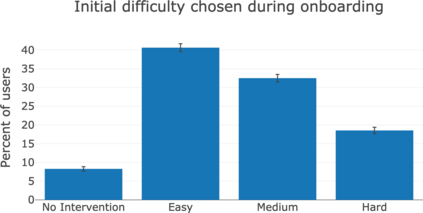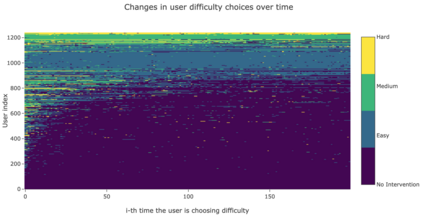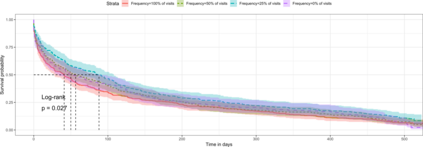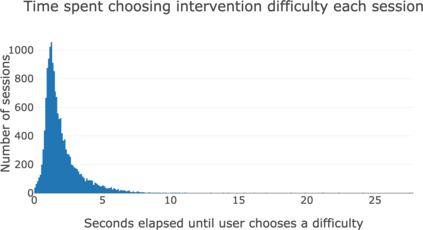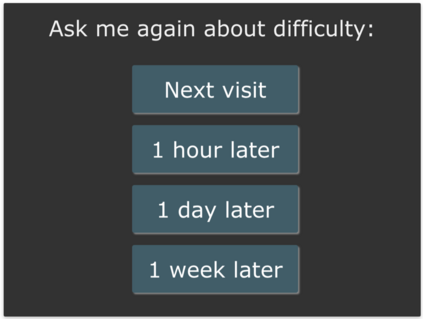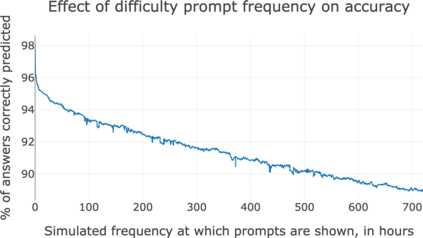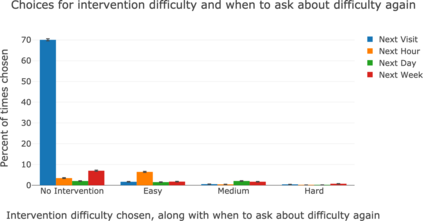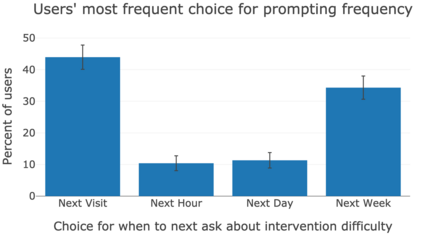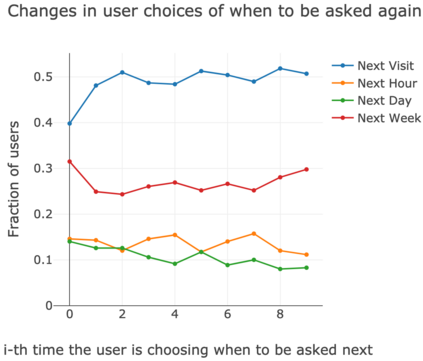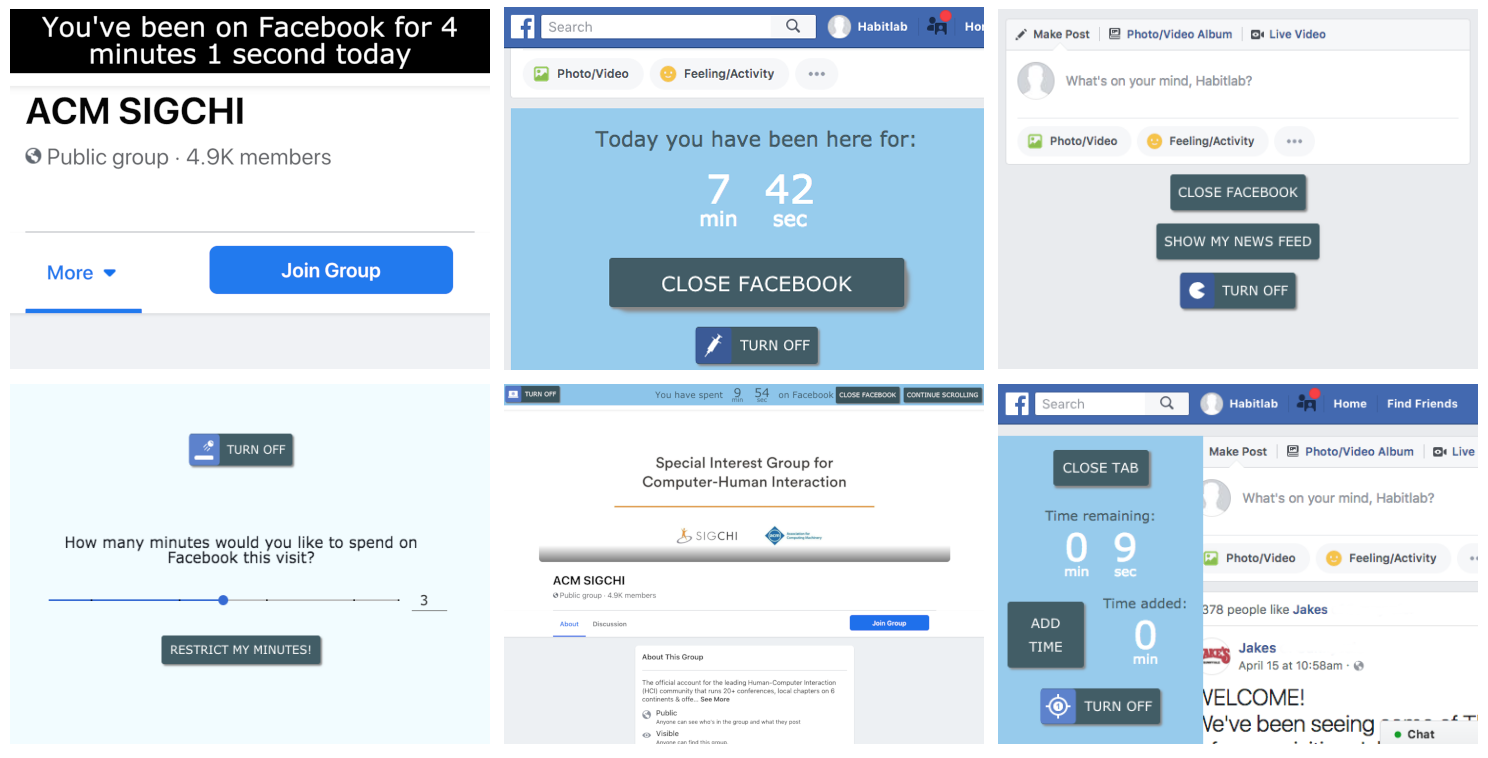How effectively do we adhere to nudges and interventions that help us control our online browsing habits? If we have a temporary lapse and disable the behavior change system, do we later resume our adherence, or has the dam broken? In this paper, we investigate these questions through log analyses of 8,000+ users on HabitLab, a behavior change platform that helps users reduce their time online. We find that, while users typically begin with high-challenge interventions, over time they allow themselves to slip into easier and easier interventions. Despite this, many still expect to return to the harder interventions imminently: they repeatedly choose to be asked to change difficulty again on the next visit, declining to have the system save their preference for easy interventions.
翻译:我们如何有效地坚持有助于我们控制在线浏览习惯的试探和干预?如果我们暂时失效并禁用行为改变系统,我们是否以后恢复遵守,或者水坝破裂?在本文中,我们通过对Habitlab上8000+用户的日志分析来调查这些问题,HabitLab上的行为改变平台帮助用户缩短在线时间。我们发现,虽然用户通常从挑战性强的干预开始,但随着时间的流逝,他们还是可以滑入更容易和更容易的干预中。尽管如此,许多人仍然期望很快回到更困难的干预中来:他们一再选择在下次访问时再次被要求改变困难,拒绝让系统避免他们选择简单干预。

